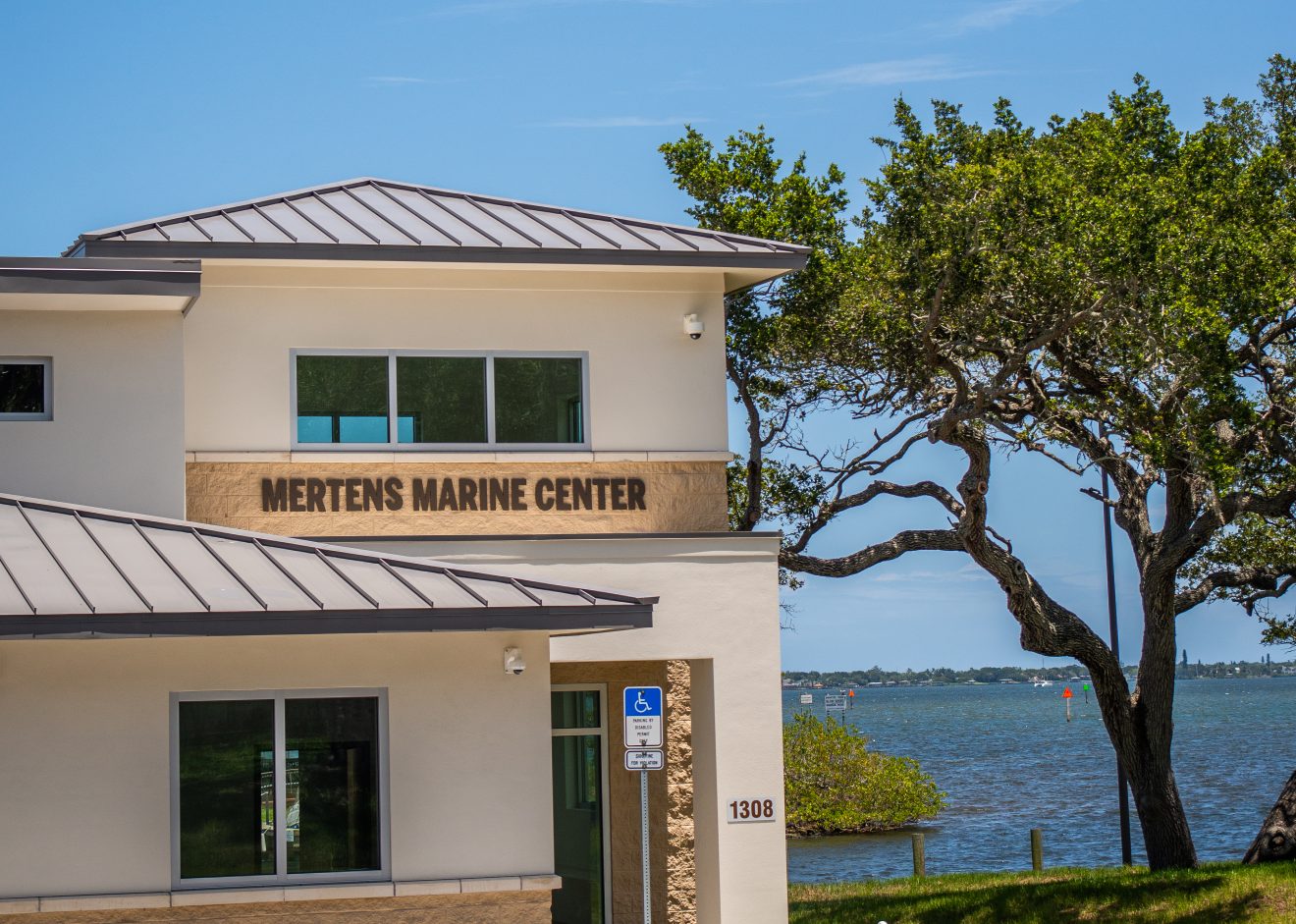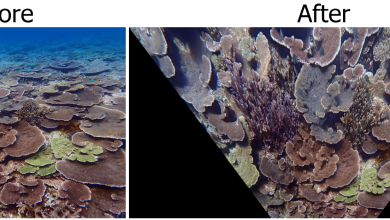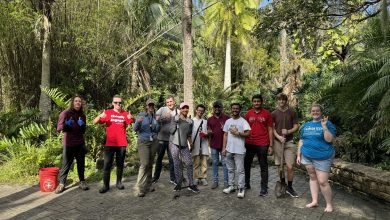New Mertens Marine Center Provides Lagoon Access and Lab Space for Students and Faculty
As their boat returns to Florida Tech’s anchorage at the mouth of Melbourne Harbor, students grab the samples they just collected and head for the parked cars. Up next is the 10-minute drive to campus, where they will hustle to a lab to process their samples.
With the opening of the university’s newest educational facility, that cumbersome, post-fieldwork process will be replaced by a new, previously unavailable approach: walking from the boat to a lab in the new Mertens Marine Center, just feet from the docks.
That proximity matters.
“This facility enables us to be more effective in accessing the natural environment and processing freshly collected samples within minutes of returning to the shore,” said Kevin Johnson, professor of oceanography and program chair for a host of related majors, including environmental science, environmental resource management and sustainability. “There are many types of samples for which quick processing is desirable for accuracy and quality of outcome. There will also be the opportunity for engineering projects to be developed and tested in water just steps from the development venue.”
The 3,000-square-foot, $1.25 million building overlooking Crane Creek features two research/lab spaces, a conference room and two faculty offices. It will serve up to 140 undergraduate and 50 graduate students in ocean engineering, oceanography, environmental science, marine biology and sustainability.
And like Florida Tech’s space heritage, imbued in the university from founding president and rocket scientist Jerome P. Keuper, this building has an important and illustrious pedigree.
Lawrence and Margarete ere friends with Keuper, and the Mertenses both were avid scuba divers. Lawrence Mertens would go on to serve as the university’s first marine biology instructor—at Keuper’s request—and later, the couple became major Florida Tech benefactors, including a $1 million gift to build the marine center.
Lawrence Mertens passed away in 2017, Margarete Mertens in 2018.
In the building that bears their name, their legacy and Florida Tech’s unparalleled hands-on education will flourish.
“Florida Tech is all about ‘hands-on,’ and the Mertens Marine Center location provides the perfect setting for hands-on work—right next to the water where we have docks and keep our boats,” Johnson said. “This will take the already excellent education and training Florida Tech students receive to the next level.”
Florida Tech is all about ‘hands-on,’ and the Mertens Marine Center location provides the perfect setting for hands-on work—right next to the water where we have docks and keep our boats.”
Kevin Johnson, professor, Ocean engineering and marine sciences
The building will serve as a base of operations for research and student training in the marine sciences and ocean engineering. Research on environmental restoration and solutions will be conducted there by both graduate and undergraduate students. Graduate student thesis and dissertation projects and undergraduate senior design projects will also be carried out in the center.
These projects will cover a very broad variety of science and engineering, including studies of invasive species, living shorelines, plastics pollution, eutrophication, submersible vehicles, energy generation, population biology, harmful algal blooms, oyster restoration, sediment geochemistry, nutrient flux, bathymetry, dredging techniques and restoration efforts.
“The center’s location is ideal for the estuarine and environmental coastal zone work for which Florida Tech is well known,” Johnson said. “What had been missing until now was a well-outfitted base of operations for science and engineering adjacent to the water.”
This piece was featured in the fall 2022 edition of Florida Tech Magazine.






